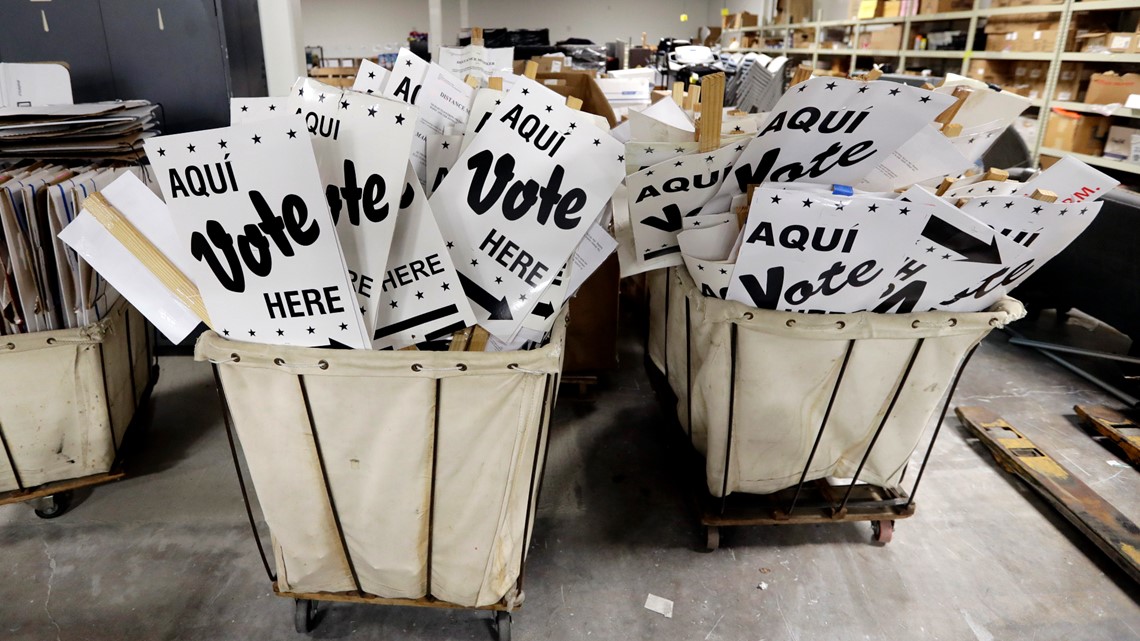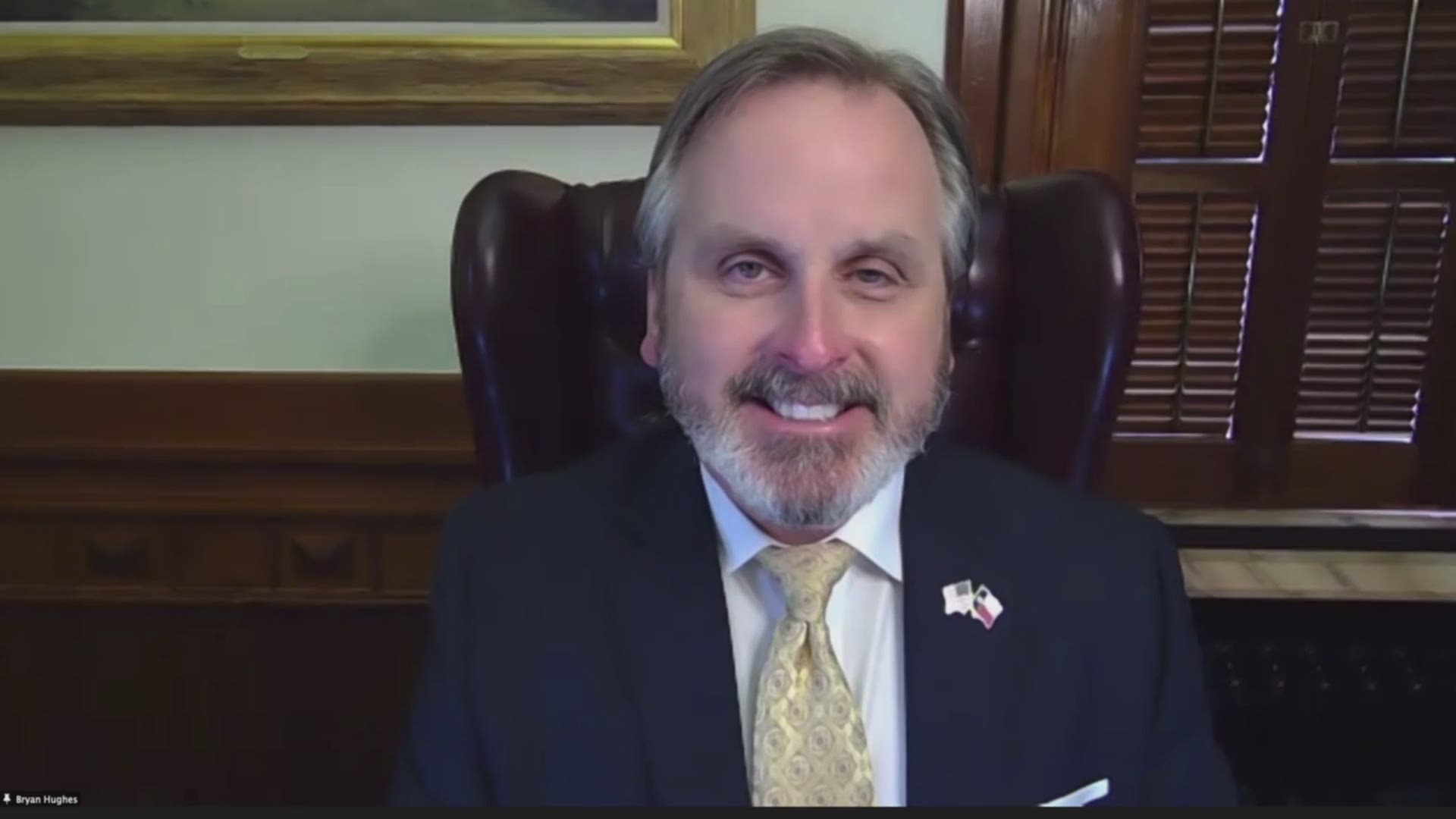DALLAS — A state senator from East Texas said he is preparing to introduce three new bills in the Texas legislature this week that will likely generate a lot of discussion on both sides of the political aisle.
The legislation includes a pro-life proposal, one on election security and a bill that addresses how Texans can respond when they are banned from their social media accounts.
In an interview on Sunday’s Inside Texas Politics, State Sen. Bryan Hughes, R-Mineola, said he will reintroduce the “heartbeat bill” first.
“Many states have already passed heartbeat bills,” Hughes said in the television interview. “Texas is behind. This bill will say when there's a heartbeat detectable, that little baby is going to be protected from abortion so it's a straightforward bill.”
The Republican from East Texas acknowledged that a similar bill passed the senate last session, but did not have the votes in the Texas House.
“It's interesting [because] we normally pass in Texas, pro-life bills every session or so, but you're right last session a heartbeat bill began in the House and it didn't get the traction needed,” Hughes said. “I can’t give you a specific reason why the heartbeat bill hasn't passed before we feel good about it this time. We're optimistic.”
The senator said he’s also introducing legislation that will address what happens when big tech companies like Twitter and Facebook ban individuals for violating their terms of service.
“Federal law does allow us to regulate these companies,” Hughes said, “and so the bill we're getting ready to file will say that if a company discriminates against you, if the platforms blocks or kicks you off based on your viewpoint, based on your politics or religion based on viewpoint discrimination, it will give you a way to get back online.”


When pressed to explain more, the senator said his legislation would provide a legal option to Texans.
“Yes, that's exactly right. The bill we had last time looked at different options for bringing suit. What we would like to do is to give any Texan who's being discriminated against, the option to bring an action. We think that will get Facebook's attention, get Twitter's attention, and cause them to start treating Texans fairly.”
Last week, Gov. Greg Abbott made election security an emergency item in his state of the state address.
Sen. Hughes said he is also creating legislation on that issue.
“We're talking about common sense reforms that say for those mail-in ballots, we're going to verify the signatures, make sure it really is the person who's voting. Also, for poll watchers, the rule says they can be in the room, but we saw in some places like Detroit and Philadelphia, the poll watchers were in the room but 100 feet away from what's happening. They need to be in the room and able to meaningfully observe what's going on. So, this is bipartisan stuff so that everybody is treated fairly and the watchers and observers from both parties can see what's going on."
But, by all accounts, the November election in Texas was free from problems, state leaders said.
Hughes was asked whether Texas had any issues that this bill would correct.
“Texas has an overall good system, but it needs some tweaks it needs to be cleaned up. We've had testimony before the state Affairs Committee about organized voter fraud that we have over in my district. We have a county Commissioner and some other people under criminal indictment. So, voter fraud we're talking about, this has been investigated. The grand jury returned the indictment, so this is very much a problem in Texas," Hughes said.


Last September, a Gregg County, Tex. county commissioner was arrested for voter fraud in the 2018 primary election.
Shannon Brown, a Democratic Gregg County commissioner, was indicted on numerous felony charges. Prosecutors allege that Brown and several others falsely claimed that voters were disabled in order to obtain absentee ballots.
Brown won his race by five votes. A large share of his support came from absentee ballots.
Finally, Hughes said, he hopes to change race-based deed restrictions that remain on the books in Texas from the 1920s and 1930s.
“It's pretty scary to think about it today, but in property deeds, it would say that only people of the Caucasian race can live here or it would say certain races cannot and various races were discriminated against,” Hughes explained. “Those deed restrictions, of course, cannot be enforced today we're thankful for that, but they're still there and so many folks are shocked to buy a home or buy some property and go back into the records and find this horrible language.”
The senator said he will file legislation that, if passed, would let the landowner legally remove that language in the official county records.

